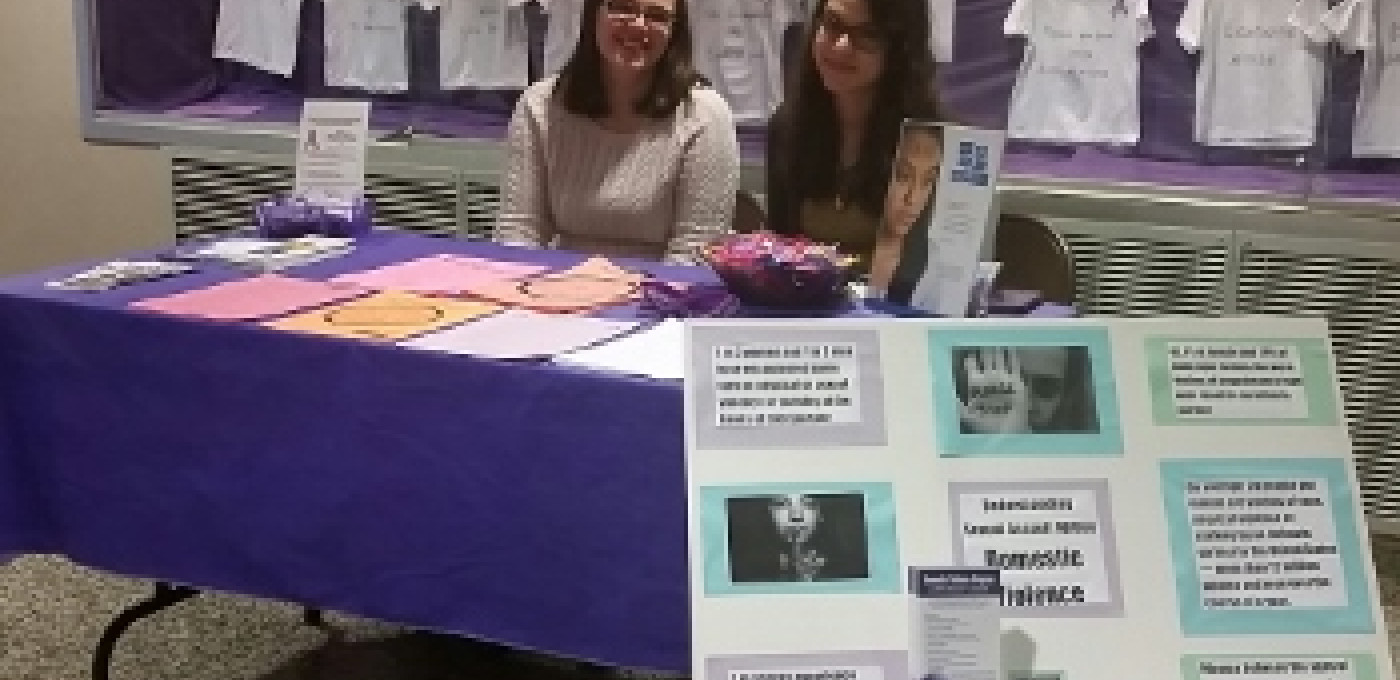
Awareness and Education Leads to Prevention

Domestic violence and sexual assault on college campuses is an ugly epidemic of huge proportions that has been brought to the forefront in recent years. Awareness and prevention programs, counseling services, support programs, and policies and procedures for reporting incidents are being enhanced, revised and promoted on college campuses throughout the nation, as well as here in central New York.
In October 2014, SUNY Chancellor Nancy Zimpher established a working group to develop uniform policies and guidelines to assist SUNY colleges in preventing sexual assault and responding to reports of assault, resulting in several new SUNY policies. In July 2015, Governor Cuomo signed his “Enough is Enough” legislation to combat sexual assault on college and university campuses statewide. The new law requires all colleges in New York State to adopt a set of comprehensive procedures and guidelines, including a uniform definition of affirmative consent, a statewide amnesty policy, and expanded access to law enforcement.
This past fall, Herkimer County Community College implemented a new Sexual Violence Prevention and Response Policy and Sexual Discrimination & Sexual Harassment (Title IX) Policy. In addition to communicating our new policies in a variety of ways, HCCC has made significant efforts to educate students and employees of the issues associated with sexual assault and relationship violence.
This past fall, a prevention program performance for students and staff was followed by an Empathetic Responder Workshop, in which powerful role-playing exercises placed participants in the midst of ‘what if’ situations concerning friends or classmates disclosing an incident of sexual assault. Students also attended a presentation by AK5K Race Director Jenifer Bowman titled Dating Violence and Domestic Violence Does Not Discriminate; It Can Happen to Anyone. Additional awareness activities included Sexual Assault Awareness Day, YWCA Mohawk Valley and Domestic Violence Program of Herkimer County information sessions, and Clothesline Project and Silent Witness Project displays.
New initiatives include HAVEN, a pilot program for first-year students and student-athletes to promote sexual assault and relationship violence prevention, taking into account participants’ unique perspectives and experiences. In the spring, students will participate in Bringing In The Bystander; a prevention workshop for establishing a community of responsibility. These sessions are intended to help participants understand that everyone has an important role to play in the intervention and prevention of sexual violence.
Colleges that receive federal Title IX funding are required by the Jeanne Clery Disclosure of Campus Security Policy and Campus Crime Statistics Act and the Higher Education Opportunity Act to report crime statistics on an annual basis. This data is available at http://ope.ed.gov/security/.
Herkimer’s reporting on crime statistics is in full compliance with the Clery Act, as evidenced by a recent audit. Despite students being more willing to report incidents, in the past three years, domestic violence and sexual assault reports by HCCC students have declined. (A recent story, published in the OD, inaccurately reported statistics from the Village of Herkimer Uniform Crime Report as HCCC’s statistics.) We attribute the decrease, in part, to a strategic and concerted effort to create an environment of civility on-campus, increase awareness of the issues, provide support and advocacy to victims, and implement new and revised policies and procedures that encourage victims to report incidents.
Though we may never be able to prevent 100 percent of the domestic violence and sexual assault crimes that affect students, it certainly is a goal that we are committed to working toward. We know that many incidents go unreported, so regardless of the stats, we continue to research, develop and implement awareness and prevention programs, counseling and advocacy services, and reporting mechanisms that provide students with the information, support and avenues they need to ensure their safety, security and sense of well-being at college and beyond.
Matthew Hawes, Ed.D.
Dean of Students

